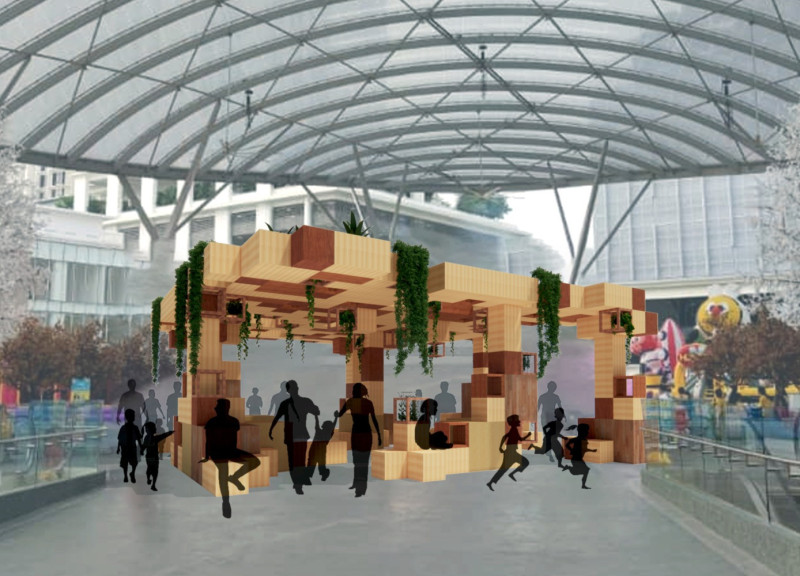5 key facts about this project
Astaka Bukit Jalil is located in Pavilion Bukit Jalil Open Plaza, positioned in a busy urban area. The design aims to create a communal space that offers respite from the surrounding concrete. Modular pavilions are at the heart of the concept, intended to serve various functions and promote social interactions. This design focuses on reconnecting people with nature amidst an urban setting.
Sustainability as a Core Principle
The project incorporates sustainability into its very structure. Recycled timber and engineered wood are key materials used, selected for their environmental benefits. They are renewable and recyclable, reducing waste and making construction more responsible. The focus on low or zero energy consumption aligns with a commitment to taking care of the environment and emphasizing resourcefulness in urban design.
Modularity and Adaptability
The flexibility of the pavilion supports its use in multiple ways. Its modular nature allows for easy assembly and transport, making it well-suited to different contexts and user needs. Unlike more permanent structures, these pavilions blend into the daily life of the community, encouraging visitors to engage with one another. This design fosters interaction, making it possible for people to gather and connect in a meaningful way.
Integration with Nature
Astaka Bukit Jalil connects the built environment with nature, creating spaces that invite greenery into the urban scene. The shape and form of the pavilions reference nearby architectural styles, ensuring they fit well within the context. This relationship with nature encourages people to step outdoors and enjoy the fresh air, offering a break from the usual urban experience.
The design encourages comfortable public areas that adapt to the local climate. Sheltered spaces formed with wooden elements and landscaping provide relief from sun and rain, enhancing the experience of those who visit. This thoughtful planning enables a more pleasant and engaging environment for socializing and relaxation amid the bustling city.




















































